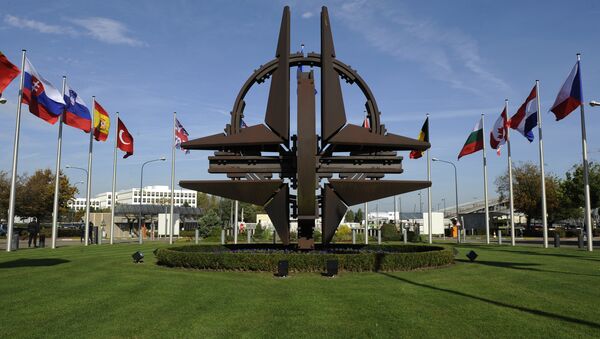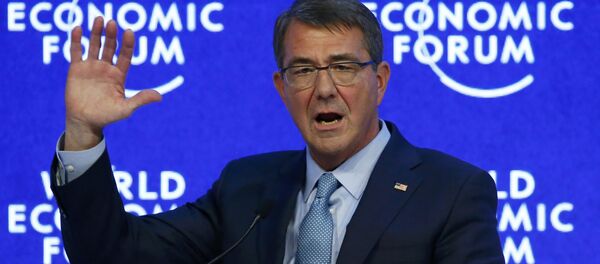MOSCOW (Sputnik) — NATO has been increasing its presence in Eastern Europe since Crimea's reunification with Russia in March 2014, as the West refused to recognize a legitimate referendum and blamed Moscow for violating Ukraine's territorial integrity.
Russia has denied the allegations and has repeatedly stated that the bloc's increased activities near its borders undermine regional and international stability.
"We have always had a long-time perspective of both been able to adapt as the security environment changes, but also in a way address the unthinkable like, for instance, nuclear war. Deterrence to be strong is part of what NATO is doing, because we believe that if we stay strong than we are able to deter and actually prevent war," Stoltenberg said at the World Economic Forum in Davos.
He added that the will to be strong did not mean that the alliance wanted to start a war, but to assure that no rival could ever attack a NATO member.


